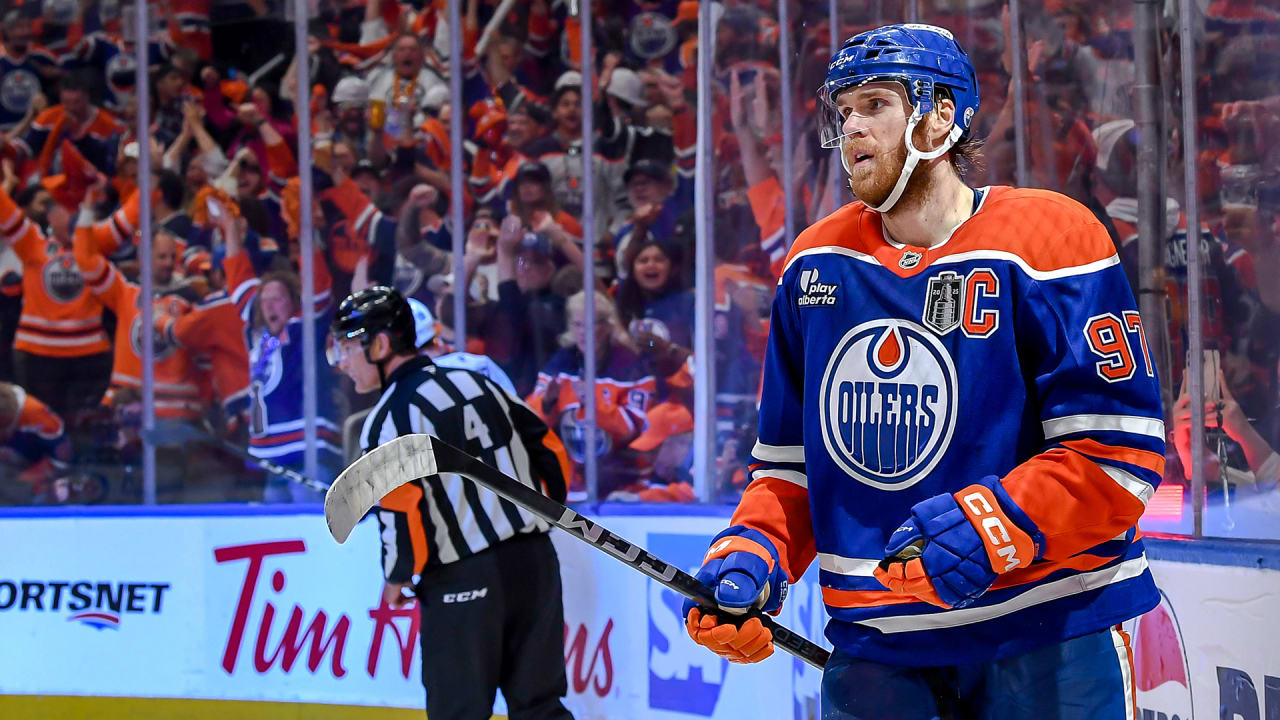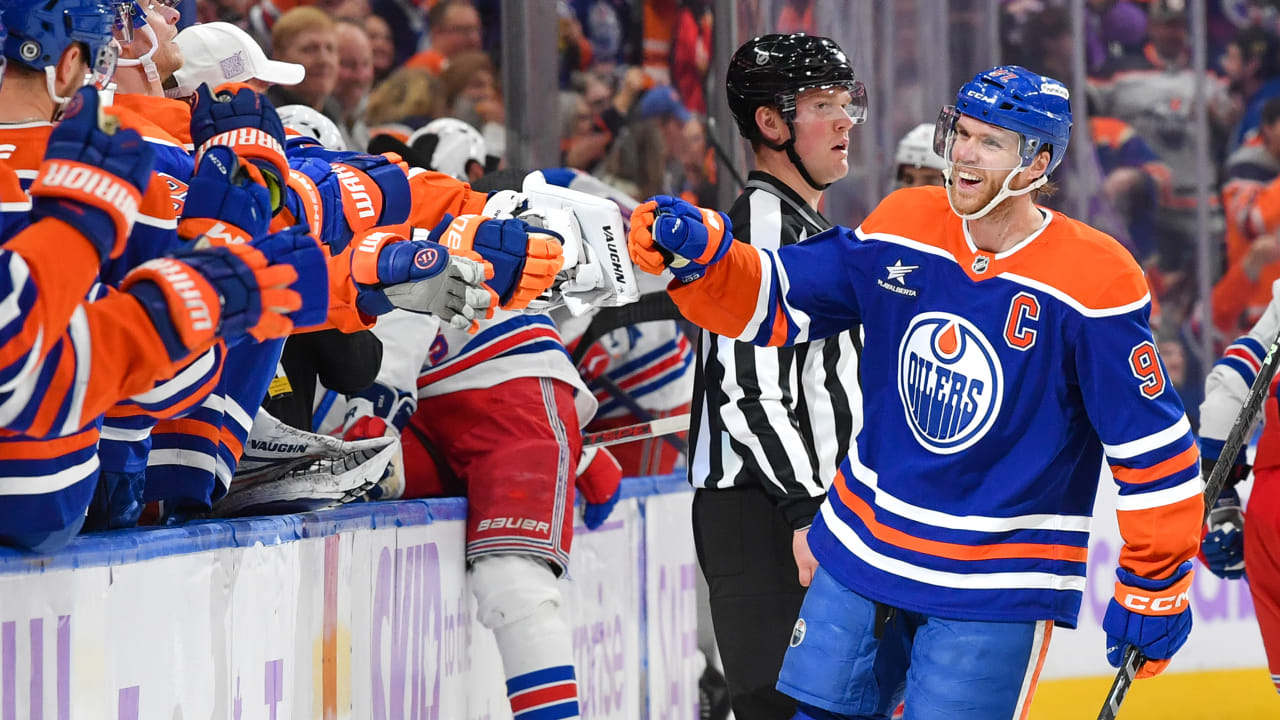The deal is done: Connor McDavid is staying in Edmonton.
In an unusual move for an NHL superstar, however, he signed very short term and for an incredible bargain with the Oilers, agreeing to a two-year extension with an average annual value of just $12.5 million. It’s far less than the $17-million-a-season deal that Kirill Kaprizov signed with the Minnesota Wild last week, and matches the same AAV as McDavid’s previous contract, which he signed way back in July 2017.
The fallout from this extension is going to be felt league-wide, with winners and losers on both sides of the ledger as one of the sport’s best players ever decided to give his team a massive hometown discount rather than test free agency.
Let’s dig in.
Winner: The Edmonton Oilers
No question about it, Oilers CEO Jeff Jackson is doing backflips right now after getting this deal done.
McDavid could have demanded a record-setting, league max contract of $19.1 million a season on whatever term he wanted. Instead, the face of the franchise saved the Oilers $6.6 million against the cap the next two seasons, enough money to add another good player to their arsenal.
Had Edmonton lost McDavid for no return in free agency in July of next year, their status as contenders would have been decimated. Instead, the Oilers remain Cup favorites, especially with the two-time defending champion Florida Panthers losing captain Aleksander Barkov to a season-long injury.
Loser: Every team that had dreams of McDavid
If McDavid had made it to free agency in 2026, all 31 other teams would have been lined up to make their pitch. And many of them had a decent pitch to make.
Dozens of teams need help at center right now. Basically every team needs another superstar, especially one who is as big of a game changer as McDavid. Instead, this takes another huge UFA piece off the board, leaving the NHL’s many rebuilding and retooling clubs unable to catch up in an environment where so few star players become available.
And how do you compete with a player of his caliber earning a salary so below market value for a contending team that’s been to back-to-back finals?
It won’t be easy.
Winner: Connor McDavid
Some might put him in the loser category for leaving so much money on the table. Not us.
Yes, McDavid could have made another $12 million or so here, but with this contract he gets a huge win with his fan base, gives the Oilers management team more cap space to work with and proves that his No. 1 desire is to win a Stanley Cup in Edmonton.
McDavid has already made well north of $100 million in his NHL career, and he will continue to sign lucrative endorsement deals. He is just 28 years old, and with the cap rising rapidly, committing to an eight-year deal likely doesn’t make sense if maximizing his financial pull becomes more pressing later in his career.
By the time he is a free agent after this extension on July 1, 2028, McDavid will still be only 31 years old and able to command a long-term deal for close to $25 million a season. Which would mean another $150 million or so in earnings, making this two-year discount a distant memory.
Loser: The Minnesota Wild
The Wild did what they had to do to keep their superstar, but it’s hard to spin this development as a win for Minnesota.
The big fear in giving Kaprizov such a massive contract, one that has no peer around the league, is what if other teams don’t follow suit? What if Leon Draisaitl’s $14 million AAV becomes the ceiling for star deals and Kaprizov’s $17 million is an outlier for years to come?
It may not be disastrous to spend a few million more for a top player than your peers, but it’s not ideal either, especially if it takes years for other Kaprizov-level stars to reach that salary level. And the Wild could soon have all their burgeoning young talent come up for big paydays, too.
Winner: Leon Draisaitl
Speaking of Draisaitl, this has to be a relief for the Oilers’ other superstar. Had McDavid chosen to walk to free agency in 2026, Draisaitl would have been committed to seven more years of an eight-year deal on a diminished Oilers roster.
Instead, his close friend takes a haircut, for $1.5 million less a season than Draisaitl, and the pair will be a force around the NHL for three more seasons.
Other winners include the rest of their Oilers teammates, too, as this extension ensures Edmonton will be one of the Western Conference’s powerhouses through 2028.
Loser: Jack Eichel and other stars in need of contracts
When Kaprizov’s deal was signed, dollar signs suddenly started appearing in the eyes of 2026’s other potential UFAs.
At the top of that list? Vegas Golden Knights center Jack Eichel, Winnipeg Jets sniper Kyle Connor and New York Rangers winger Artemi Panarin.
While it’s still likely all three command handsome contracts, especially if they make it to the open market, McDavid’s deal certainly doesn’t drive up anyone’s bargaining power. If anything, teams can go to players who want to stay and make the case that they want them to pull a McDavid, taking less to help the cause.
Whether such an argument works remains to be seen, but as of this writing both Eichel and Connor have designs on staying where they are and are relatively far along in negotiations.
It says here that their deals end up looking more like the contracts given to Draisaitl, Mitch Marner and Mikko Rantanen as opposed to Kaprizov’s $17 million cap hit.
Winner: The NHL’s middle class
If stars like McDavid keep taking haircuts, it means more money for everyone else under the league’s hard cap system. Statistically speaking, the NHL’s best players have long been underpaid compared to their on-ice value, which has allowed the league’s middle class — second-line wingers and second-pair defensemen — to reap the rewards and land bigger contracts than would otherwise be available.
The fact the Oilers signed defender Jake Walman to a seven-year, $7 million-a-season extension right after the McDavid deal was announced is a sign of where that extra money could be headed around the league, assuming McDavid starts a trend.
Loser: The Toronto Maple Leafs
The “Bring McDavid Home” talk has hit a fever pitch in Toronto of late, especially as his extension talks dragged through training camp. The Leafs lost one star in the offseason, and with a weak prospect pool and aging roster, McDavid — who grew up in Newmarket, a Toronto suburb — felt like a silver bullet option for the franchise if he made it to free agency.
There was even discussion among the fan base about punting on trying to improve the roster for the 2025-26 season to save enough cap space to land McDavid.
Now it’s on to Plan B for the Leafs, who will still have tons of cap room to work with in 2026-27.
Loser: Free agency in 2026
Speaking of teams looking ahead to next year … there may not be much left to bid on. With McDavid and Kaprizov signed, and Eichel and Connor probably not far behind, that leaves a 2026 class that’s quickly gone from unreal to less than ideal.
Panarin is probably the biggest name left, but he’ll be close to 35 by next July.
Can we interest anyone in the Adrian Kempe sweepstakes? A Martin Necas bidding war? Err … Nick Schmaltz?
Best of luck to those on the July 1 TV panels next year, but it’s already looking kind of grim.
Winner: Free agency in 2028
Hey, maybe it’s just dreams delayed for the teams that wanted McDavid?
Perhaps by 2028, McDavid has won his Stanley Cup in Edmonton, and, having accomplished his mission, wants to finish his career in a new location? Or perhaps he’s still searching for an elusive championship and opts to test the market?
In which case, all of the suitors can get ready for what will likely be the NHL’s biggest UFA sweepstakes ever.
Source link


